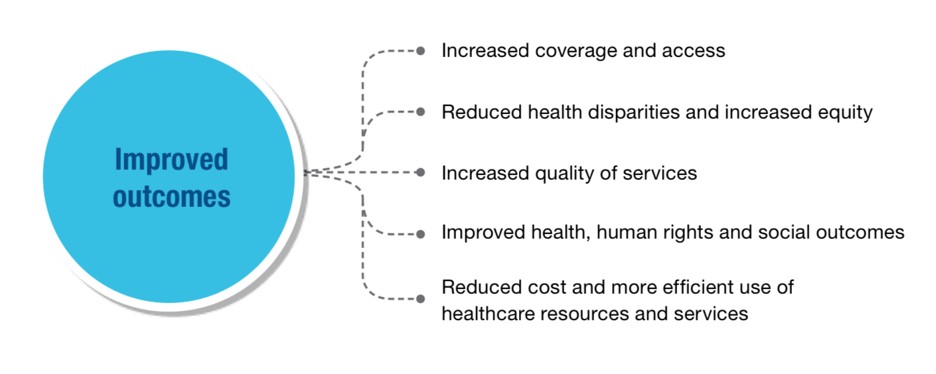
The health ministers of Costa Rica and Malawi, along with global health and policy experts, gathered in Geneva to discuss self-care.
At an event organized by the Global Self-Care Federation (GSCF), participants advocated for a World Health Organization (WHO) resolution on self-care. Costa Rica, Egypt and Malawi, the three countries that co-hosted the event, are working to increase self-care.
Ministerial representatives from Guatemala, Belize, Panama and El Salvador were also present.
“The potential for self-care is huge,” said Iain Chapple, professor of periodontology at the University of Birmingham and one of the summit’s panellists. Health Policy Monitoring. However, he said the approach “must be multi-dimensional”, with collaboration from different fields.
“We need self-care embedded in public health policy,” said GSCF CEO Judy Stenmark. She explained that a WHO resolution “could lead to meaningful policy change” and cost savings for health care systems.
“We want to save time and money for individuals, health care professionals and health care systems, and we have evidence and data showing that self-care can do all of that,” Stenmark said.
According to a policy report published by the United Coalition for Self-Care, implementing self-care protocols could generate up to $119 billion a year in savings for health systems.
The WHO estimates there will be a global shortage of 18 million health workers by 2030. In 2022, the WHO said at least 400 million people worldwide did not have access to the most essential health services. The organization ranked self-care among “the most promising and exciting approaches to improving health and well-being.”
A key aspect of the conversation this week was making self-care accessible to everyone. Every year, 100 million people plunge into poverty because of high health care costs, the WHO said.
“A comprehensive approach to self-care must include cultural sensitivities, holistic practices and community engagement,” said Wendy Olayiwola, president of the Nigerian Nurses Association UK and Professional Midwives Advocate.
Self-care can complement other public health services by being integrated into overall health coverage plans, particularly for people who “fall through the cracks” of the system, said Dr Manjulaa Narasimhan, head of the Sexual and Reproductive Health Research Unit at WHO.
She said making menstrual products more available in different contexts is a powerful example of implementing self-care.
“Self-care is about how people lead their lives and how they can take care of themselves,” Narasimhan said.
Dr Mary Munive Angermüller, Vice President of Costa Rica and Minister of Health added: “Self-care is not an individual action, it requires a combination of different circumstances from health education to public health policies in order to realize its potential. “
Putting people at the center
Another “concrete” benefit of self-care is that “patients take an active role in their own health,” said another summit panelist, Ellos Lodzeni, President of the International Patient Alliance Organization. He said patients also make more informed decisions.
“When we put people at the center of healthcare, self-care comes naturally,” added Narasimhan.
A major focus of the Global Self-Care Federation’s efforts is education.
Educating people about ways to take care of their health and new tools that can help them with it has many advantages, said Chapple, who spoke to Health Policy Monitoring.
Additionally, Narasimhan said education about where to find accurate health information is essential. She said sometimes people can find false information online, for example. She said it would be better to provide “good self-care education, starting from the beginning.” This means throughout life, from pre-birth to adulthood.
Benefits of Self-Care

“Self-care can also be discussed in the context of health insurance,” said Dr Mariam Jashi, Chair of the Eastern Europe and Central Asia chapters of UNITE, an international consortium of current and former parliamentarians.
She spoke to Health Policy Monitoring. She said she sees a lot of potential for policy making regarding health coverage and prevention as essential components of self-care. Screening, for example, for breast cancer is “a classic example of self-care. It makes it possible to identify potentially deadly diseases with timely detection [and] increase the chance of survival and quality of life.”
However, Jashi said we need to agree, “especially at the international level,” on defining self-care. The summit was a great start, Jashi said, “but more work is needed for a better framework.”
To learn more about self-care and the work of the United Coalition for Self-Care, visit www.unitedforselfcare.org.
Image credits: Zuzanna Stawiska, World Health Organization.
Fight the infodemic in health information and support health policy reporting from the global south. Our growing network of journalists in Africa, Asia, Geneva and New York connects the dots between regional realities and major global debates, with evidence-based open access news and analysis. To make a personal or organizational contribution, click here on PayPal.
#Health #advocates #push #selfcare #resolution #year
Image Source : healthpolicy-watch.news